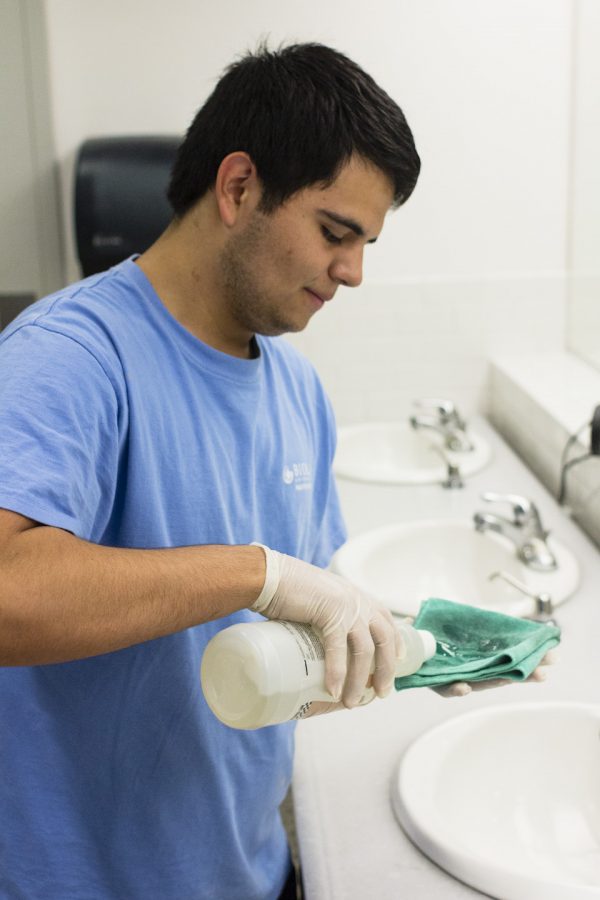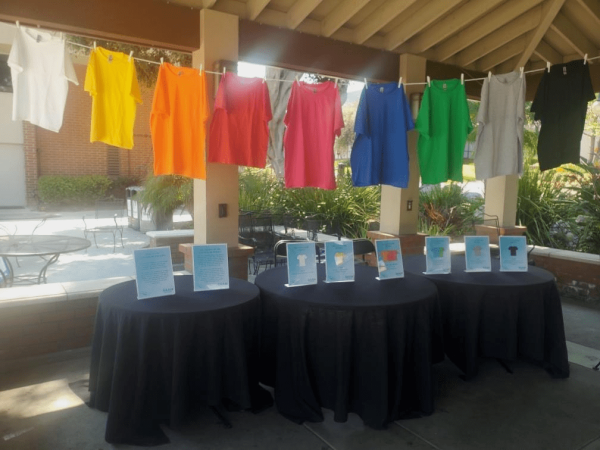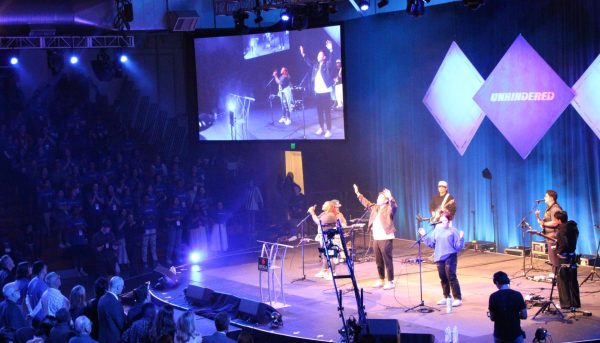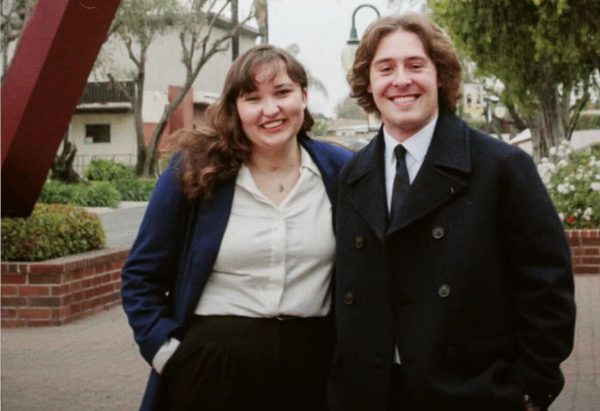Obamacare mandate delay hits Biola student jobs
Student employees are relieved to know that the Obamacare mandate has been delayed.
Sophomore Steven Orozco wipes down a bathroom door during his shift as a facilities worker on campus. He, like other full-time student employees, are at risk of getting hours cut. | John Buchanan/THE CHIMES
September 10, 2013
The Obama administration’s decision this summer to delay implementation of the employee mandate in the Affordable Care Act means that Biola can continue to employ students for more than 30 hours per week without having to offer them health insurance.
The delay, announced in July, is expected to last for one year, according to the U.S. Treasury Department.
Before this development, Biola’s human resources department announced they would allow students to work a maximum of 25 hours per week during the school year and 32 hours per week during the summer. This was never implemented due to the delay, according to senior director of human resources Ron Mooradian.
“It’s basically back to business as usual,” Mooradian said.
Employer mandate brings relief
Senior biblical studies major Clarke Andros, who works at Biola an average of 33 hours a week, is relieved that the the employer mandate is being lifted.
“It was totally a God thing for me and my wife,” Andros said.
Andros, who has been married for three weeks, explained that he needs the hours to support himself and his wife. He works three on-campus jobs as a student technician for facilities management, a library circulation worker and a TA for biblical studies professor Uche Anizor. He would have had to give up the latter two jobs had the 25 hour limit been imposed.
“I freaked out a little bit — not very trusting of me, in the Lord. I had worked out a budget that was very specific, hour-by-hour of what I needed to work in a week, for the exact of amount of money that I needed,” Andros said.
Andros explained that the 25-hour limit would have forced him to obtain an off-campus job. As a senior, the one-year delay of the employer mandate was just the amount of time he needed.
Mooradian expects to release an announcement regarding student employees during the spring 2014 semester, but he noted that things could change.
“It seems with the Affordable Care Act that a lot of decisions are being made on the fly,” Mooradian said.
An Employer’s Perspective
Library circulation supervisor April Ray oversees 38 student workers. The effect of the mandate would have been significant, according to Ray.
“We typically have around four or five people that work twenty hours or more — I know they have more than one job — so I know they would go over 25 [hours],” Ray said.
The delay was a relief for Ray; she stated that it will be a lot less complicated to schedule and hire. Once a student is hired, training takes significant time and energy.
“Given that training here takes 30 hours, bringing on a new person takes quite a bit of work,” Ray said.
No decision has been made regarding non-student employees, according to Mooradian.
“There’s some talk in the government that they may change the 30-hour limit to something higher,” he said.







